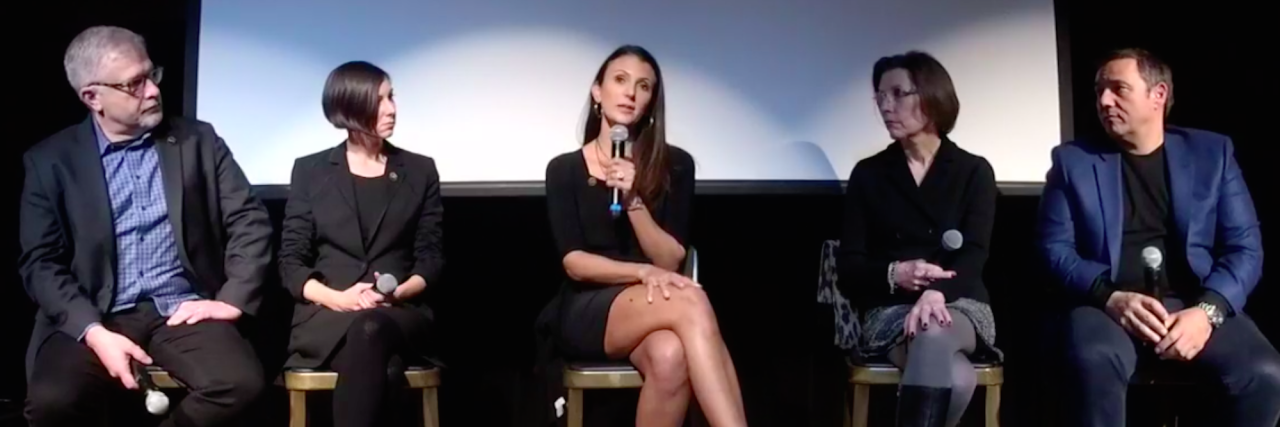Talinda Bennington and Anna Shinoda Discuss Chester Bennington's Death
When a loved one dies by suicide, it’s common to look for someone or something to “blame.” Unfortunately, this can leave suicide loss survivors blaming themselves.
After losing lead singer Chester Bennington to suicide last July, Talinda Bennington touched on this topic at the Canadian Event Safety Summit on Wednesday, where she spoke with Anna Shinoda (wife of Mike Shinoda, who is also in Linkin Park) and Jim Digby (Linkin Park’s production manager). The event centered around mental illness in the music industry, but much of the panel’s discussion centered on life after Chester’s death.
Bennington, who has consistently addressed and felt supported by her fans on social media, shared that unfortunately, some continue to blame her for Chester’s death.
As much as social media has been a huge support for me, I do every now and then get people blaming me, straight up blaming me — for him dying, for me not saving him, for you know, mistreating him… It is a little stab in the heart, but what I have to remember is it’s not my fault. It’s not my children’s fault, it’s not the band’s fault, it’s nobody’s fault. It’s not Chester’s fault.
This is something Mighty contributor Jean Mellano wrote about in “Playing the Blame-Game After a Suicide,” a piece she wrote after her husband Steve died by suicide.
In their quest for answers, some will feel the need to place blame on someone else in order to wrap their own minds around why their loved one took his or her life. Any mental health professional I have spoken to (and there have been many) has told me there was nothing anyone could have done differently to prevent Steve from taking his life…
When someone struggles with mental illness, sometimes that person’s loved ones try to rally around him or her. The problem is, we are not mental health professionals.
After suicide loss, it’s common to look for a “reason why.” In fact, Linkin Park frontman Mike Shinoda wrote a song called “Looking for an Answer” after Chester’s death that described his own experience with the questions that often follow a loved one’s suicide.
“I don’t know if any of you can relate, or if any of you have lost a loved one to suicide, or know of anyone who has self-harmed,” Talinda Bennington said on the panel. “You can do so much, but you can only do so much.”
If you are struggling with the loss of a loved one to suicide, please know it is not your fault. There are resources for suicide loss survivors. If you are struggling and need help right now, call the National Suicide Prevention Lifeline at 1-800-273-8255.
“His life has touched us in so many ways, many different ways. His voice is the sound of a generation, and he is a legend and that will never die,” Bennington said.
You can watch the full stream of the panel discussion here.
If you or someone you know needs help, visit our suicide prevention resources page.
If you need support right now, call the National Suicide Prevention Lifeline at 1-800-273-8255, the Trevor Project at 1-866-488-7386 or text “HOME” to 741-741. Head here for a list of crisis centers around the world.

